When it comes to importing goods from China to Tanzania, choosing the right shipping method is pivotal for ensuring timely and cost-effective delivery. With a wide array of options available, from air freight to sea freight, understanding the nuances of each can empower businesses to make informed decisions. This comprehensive guide explores various shipping methods, highlights top international freight forwarders, delves into the implications of Incoterms, and offers practical tips for negotiating competitive shipping rates. Whether you’re a seasoned importer or new to the logistics landscape, this resource will equip you with the knowledge needed to navigate the complexities of shipping goods from China to Tanzania effectively.
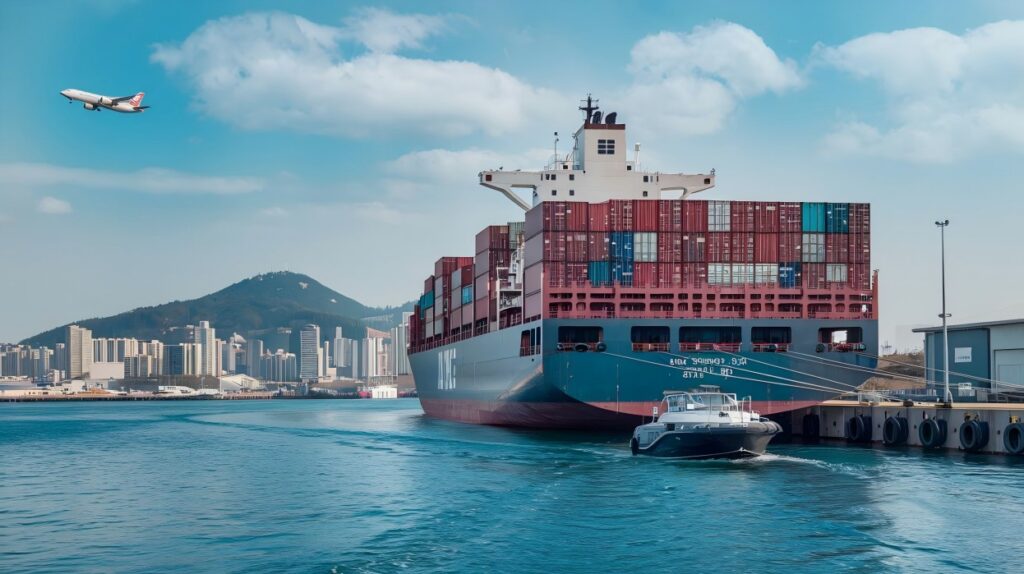
Shipping Options from China to Tanzania
When importing goods from China to Tanzania, selecting the right shipping method is crucial to ensure timely and cost-effective delivery. Various options cater to different needs, and understanding the distinctions can help you make informed decisions.
Air Freight vs Sea Freight
| Criteria | Air Freight | Sea Freight |
|---|---|---|
| Speed | Fastest shipping option, typically taking 3-5 days. | Slower, generally taking 20-40 days depending on the route. |
| Cost | More expensive due to speed and handling; ideal for high-value goods. | Economical for bulk shipments; costs less per kilogram. |
| Capacity | Limited cargo space; best for smaller, high-value goods. | Large cargo capacity, suitable for bulky and heavy items. |
| Environmental Impact | Higher carbon footprint due to fuel consumption. | More environmentally friendly, especially in larger volumes. |
| Customs Clearance | Faster clearance process due to quick transit times. | Clearance can take longer; requires proper documentation. |
Express Delivery Services
Express delivery services cater to businesses needing rapid shipping solutions. Providers like DHL, FedEx, and UPS offer expedited shipping from China to Tanzania, typically delivering within 1-3 days. While these services are often more costly, they provide additional benefits such as:
- Online tracking: Keep tabs on your shipment’s location in real time.
- Guaranteed delivery times: Providers often guarantee delivery within a specific timeframe.
- Customs clearance assistance: Experienced couriers handle all necessary documentation, minimizing delays.
For businesses requiring fast turnaround times, express delivery is a viable option, albeit at a premium price.
Door-to-Door Shipping
Door-to-door shipping is an attractive option for many importers, as it simplifies the logistics process. This service includes everything from pick-up at the supplier’s location in China to delivery at the customer’s doorstep in Tanzania. Key features include:
- Convenience: The hassle of coordinating multiple transport modes is eliminated.
- Comprehensive service: Dantful’s Door-to-Door Shipping provides an all-in-one solution, covering customs clearance, delivery, and insurance.
- Predictable costs: Customers receive a fixed quote upfront, helping to manage budgets effectively.
Choosing a door-to-door shipping service can enhance operational efficiency, especially for businesses without dedicated logistics teams.
If you want to find out about shipping from China to other European Africa, you can read:
- Shipping from China to Libya
- Shipping From China To Sudan
- Shipping From China To Djibouti
- Shipping From China To Tunisia
- Shipping From China To Somalia
- Shipping From China To Nigeria
Factors to Consider When Choosing a Shipping Company
Selecting a reputable shipping company is a critical step in the importing process. Here are several essential factors to consider:
Shipping Costs and Rates
Understanding the various costs involved in shipping is fundamental to your decision-making. Different shipping methods, cargo sizes, and service levels can significantly affect the overall shipping cost. Request detailed quotes from multiple providers for accurate comparisons.
| Considerations | Air Freight | Sea Freight | Express Delivery |
|---|---|---|---|
| Typical Cost Per KG | Higher ($5 – $20) | Lower ($1 – $5) | Varies ($10 – $30) |
| Additional Fees | Fuel surcharges, handling fees | Port charges, customs fees | Customs clearance fees |
Transit Times
Transit times vary significantly based on the shipping method chosen. Air freight is the fastest, while sea freight offers cost savings at the expense of speed. Evaluate your delivery timeline requirements and choose accordingly. Dantful can provide a comprehensive analysis of expected transit times for each shipping option.
Reliability and On-Time Delivery
The reliability of a shipping company can profoundly impact your business operations. Research customer reviews and service ratings to gauge the provider’s track record. Look for companies like Dantful that offer guarantees on delivery times, ensuring shipments arrive as planned.
Insurance and Damage Protection
Protecting your investment is crucial. Verify what level of insurance services the shipping company offers. It’s advisable to opt for providers that offer comprehensive insurance coverage to safeguard goods against potential loss or damage during transit. Dantful offers tailored Insurance Services to meet the specific needs of your cargo.
Customer Service and Support
Effective customer service is key when dealing with international shipping. A responsive support team can assist with queries, address potential issues, and provide real-time updates on your shipment’s status. Evaluate the availability of customer support channels—such as phone, email, or live chat—before finalizing your choice of shipping partner.
By considering these factors, you can make an informed decision that aligns with your business needs when importing goods from China to Tanzania. Partnering with a knowledgeable logistics provider like Dantful International Logistics can help streamline the shipping process, providing a highly professional, cost-effective, and high-quality service tailored to global traders.
Top International Freight Forwarders for China to Tanzania Shipping
DHL
DHL is a prominent logistics provider known for its extensive global network and superior service quality. With a strong presence in both China and Tanzania, DHL offers a variety of solutions, including:
- Express shipping: Fast delivery options suitable for time-sensitive shipments.
- Comprehensive tracking: Real-time tracking capabilities allow customers to monitor shipments throughout their journey.
- Customs expertise: Knowledgeable staff ensures smooth customs clearance.
FedEx
FedEx is a trusted name in logistics, offering reliable shipping services with a focus on speed and efficiency. Key features of FedEx include:
- Global reach: Extensive logistics network connecting China and Tanzania through multiple routes.
- Flexibility: A range of shipping options, including overnight and economy services to fit various budgets and timelines.
- Customer support: Excellent customer service, with dedicated representatives to assist with any inquiries.
UPS
UPS is well-regarded for its extensive transportation and logistics expertise, particularly in freight forwarding. Benefits offered by UPS include:
- Comprehensive service offerings: A wide range of shipping solutions, including air freight, sea freight, and ground transportation.
- Custom solutions: Tailored services to meet specific shipping requirements.
- Strong reliability: An established reputation for on-time deliveries and efficient handling of goods.
Aramex
Aramex is a global provider with a strong presence in the Middle East and Asia, making it a suitable choice for shipping from China to Tanzania. Highlights of Aramex services include:
- Cost-effective shipping: Competitive rates for both air and sea freight options.
- E-commerce services: Specialized solutions for businesses involved in online retail, including last-mile delivery.
- Customs facilitation: Expertise in navigating customs regulations ensures smoother clearance processes.
DB Schenker
DB Schenker is a major player in the logistics industry, providing end-to-end supply chain solutions. The advantages of using DB Schenker include:
- Scalable logistics solutions: Services range from small shipments to large-scale freight operations.
- Sustainability focus: Commitment to environmentally friendly practices in transportation.
- Advanced technology: Utilization of digital tools for enhanced visibility and efficiency in the shipping process.
Advantages of Using an International Freight Forwarder
Utilizing an international freight forwarder offers numerous benefits that streamline the shipping process from China to Tanzania. Here are some key advantages:
Expertise in International Shipping Regulations
Freight forwarders possess specialized knowledge of international shipping regulations, including legal requirements, tariff classifications, and freight documentation. This expertise ensures compliance with local and international laws, helping to avoid potential fines or delays.
Customs Clearance Assistance
Navigating customs can be complex, but freight forwarders simplify this process. They provide essential assistance with customs documentation, duties, and taxes, ensuring that shipments clear the border efficiently. For businesses lacking familiarity with Tanzanian customs procedures, this support is invaluable.
Tracking and Status Updates
Most international freight forwarders offer real-time tracking of shipments, providing customers with updates on their cargo’s status. This transparency allows businesses to plan accordingly, alleviating concerns about delays or unforeseen issues.
Single Point of Contact
Working with a freight forwarder means having a dedicated representative who manages the entire shipping process. This single point of contact simplifies communication, enabling businesses to receive prompt answers to inquiries and updates on their shipments without having to reach out to multiple parties.
By leveraging the services of established freight forwarders, businesses can significantly enhance the efficiency of their shipping operations, minimize risks, and ultimately contribute to a smoother import process from China to Tanzania. For a highly professional, cost-effective, and high-quality service, partnering with Dantful International Logistics can elevate your logistics experience, ensuring that your goods reach their destination safely and on time.
Local Chinese Shipping Companies for Tanzania
Lower Costs Than International Providers
Local Chinese shipping companies often present more competitive pricing compared to larger international providers. This cost-effectiveness results from several factors:
- Reduced operational costs: Local companies can operate with lower overhead, which translates to savings for customers.
- Flexible pricing options: Many local providers offer tailored solutions that can better fit the budget of small and medium-sized enterprises.
- Negotiable rates: Local companies may offer more flexibility in negotiating shipping rates, especially for bulk shipments.
This pricing structure allows businesses to maximize their profit margins while ensuring efficient logistics from China to Tanzania.
Chinese Language Support
For businesses based in China, partnering with local shipping companies provides the advantage of Chinese language support. This can be critical for:
- Effective communication: Direct discussions in Mandarin or other regional dialects eliminate potential misunderstandings and streamline the shipping process.
- Coordination with suppliers: Local companies facilitate smoother coordination with Chinese suppliers, ensuring accurate handling of orders and shipments.
- Documentation accuracy: Assistance in preparing shipping documents in the local language can prevent delays associated with language barriers in customs processes.
This language support significantly enhances operational efficiency for businesses engaged in importing goods.
Knowledge of Local Shipping Conditions
Local shipping companies possess in-depth knowledge of shipping conditions within China, which is essential for ensuring timely and safe delivery. Their familiarity includes:
- Understanding of regional logistics: Local providers are well-versed in the unique logistics challenges and routes within China, allowing them to optimize transportation.
- Awareness of local regulations: Knowledge of domestic shipping regulations helps local companies navigate compliance issues effectively, reducing potential delays.
- Established relationships: Local companies often have pre-existing relationships with ports, customs authorities, and transport providers, which can expedite the shipping process.
This insight into local shipping conditions enables businesses to operate more efficiently and confidently when exporting goods to Tanzania.
Incoterms for China to Tanzania Shipping
EXW (Ex Works)
- Definition: The seller makes the goods available at their premises (factory, warehouse, etc.), and the buyer assumes all responsibility for transporting the goods to their final destination.
- Implication: The buyer bears all risks and costs associated with transportation, export clearance, and import duties. This term is ideal for buyers who prefer complete control over logistics.
FCA (Free Carrier)
- Definition: The seller hands over the goods to a carrier designated by the buyer at a specified location. This term can be used for any mode of transport.
- Implication: The seller clears the goods for export, but after handing them over to the carrier, the responsibility shifts to the buyer. This term is suitable for businesses looking to engage local carriers for the final leg of delivery.
CPT (Carriage Paid To)
- Definition: The seller pays for the transportation of goods to a specified destination, while the risk transfers to the buyer once the goods are handed over to the carrier.
- Implication: The seller is responsible for freight charges, but the buyer has to deal with risks during transit. This term is often used when the buyer wants cost control over shipping but is willing to accept risk during transit.
CIP (Carriage and Insurance Paid To)
- Definition: Similar to CPT, but the seller must also procure insurance for the goods during transit.
- Implication: This term shifts the risk to the buyer once the goods are handed to the carrier, but the seller’s obligation to insure the goods provides additional security. Businesses may prefer this term to ensure better protection of their goods during transportation.
By selecting the appropriate Incoterm, businesses can clarify responsibilities and manage risks effectively when shipping from China to Tanzania. Understanding these terms and working with knowledgeable freight forwarders like Dantful International Logistics can simplify the shipping process, ensuring smoother transactions and successful deliveries.
Dantful International Logistics Services:
- Dantful Ocean Freight Services
- Air Freight From China
- Amazon FBA Freight Forwarding
- WAREHOUSE Services
- One-Stop Customs Clearance Solution
- Cargo Insurance Services in China
- DDP Shipping Services By Dantful Logistics
- Out of Gauge Cargo Transportation Shipping Services
Tips for Negotiating the Best Shipping Rates
Get Quotes from Multiple Providers
Obtaining quotes from various shipping companies is essential in leveraging competitive pricing. Here’s how to effectively gather quotes:
- Research and identify multiple providers: Explore various local and international freight forwarders, ensuring you have a diverse range of options to compare.
- Request detailed quotes: Inquire about all potential fees, including base shipping rates, fuel surcharges, and additional handling costs. A comprehensive quote helps avoid hidden charges later.
- Negotiate based on quotes: Use your compiled quotes to negotiate better rates. Providers may offer discounts or match competitors’ prices to secure your business.
By comparing multiple quotes, you can ensure that you are selecting the most cost-effective option for your shipping needs.
Provide Accurate Dimensions and Weights
Accurate information about your cargo is vital for determining shipping costs. Here are tips for ensuring precision:
- Measure dimensions correctly: Measure the length, width, and height of your packages accurately, as these factors significantly impact shipping calculations.
- Weigh your cargo: Use calibrated scales to determine the exact weight of your shipments to avoid unexpected fees.
- Provide complete details: Include all relevant information when requesting quotes, as inaccuracies can lead to higher costs or delays in shipping.
By providing precise information, you help freight forwarders calculate the most accurate shipping costs, which can lead to better pricing options.
Consider Shipping in Off-Peak Seasons
Shipping costs can fluctuate based on demand. Here’s how to take advantage of off-peak seasons:
- Identify peak periods: Research shipping trends to determine when demand is highest, usually during holidays or significant events in both China and Tanzania.
- Plan ahead: Schedule shipments during off-peak times when demand is lower, as this often results in reduced shipping rates and better availability of transport options.
- Consult with your freight forwarder: Discuss potential off-peak shipping schedules with your provider to effectively plan your logistics strategy.
Shipping during off-peak seasons can lead to significant savings while ensuring that your goods are transported efficiently.
Consolidate Shipments When Possible
Combining multiple shipments into one can lead to cost reductions. Consider these tips for successful consolidation:
- Assess shipment schedules: Coordinate delivery times for shipments to the same destination, allowing for combined transportation.
- Optimize container space: Work with your freight forwarder to maximize container utilization by grouping smaller shipments into one larger container.
- Negotiate bulk rates: Inquire about volume discounts when consolidating multiple shipments, as many providers offer better rates for larger volumes.
Consolidating shipments not only reduces shipping costs but also streamlines logistics processes, making operations more efficient.
Importance of Tracking and Insurance
Real-Time Shipment Tracking
Real-time tracking is a crucial feature offered by most reputable freight forwarders. The benefits include:
- Enhanced visibility: Track your shipment’s progress at every stage of its journey, from departure to delivery.
- Proactive updates: Receive notifications about any deviations from the expected schedule, allowing for timely adjustments and planning.
- Improved communication: Access to tracking information helps facilitate communication between stakeholders, ensuring everyone stays informed.
Having real-time tracking capabilities fosters transparency in logistics and provides peace of mind to businesses managing their shipments.
Cargo Insurance Options
To safeguard your investments, understanding cargo insurance options is essential. Key considerations include:
- Types of coverage: Explore the various types of insurance available, such as all-risk coverage or limited liability options, to determine what best suits your needs.
- Assess the value of goods: Evaluate the total value of your cargo to select an appropriate insurance policy that provides adequate coverage.
- Review policy terms: Carefully read the terms and conditions of the insurance policy to understand the claim process and exclusions.
Choosing suitable cargo insurance is vital for protecting your financial interests in the event of loss or damage during transit.
Damage Claims Process
Understanding the damage claims process is crucial for effective risk management. This includes:
- Documentation requirements: Familiarize yourself with the necessary documentation required to file a claim, such as the bill of lading, invoices, and photographs of damaged goods.
- Timely notification: Notify your insurance provider as soon as damage is discovered to facilitate a smooth claims process.
- Follow-up procedures: Keep detailed records of communications with the insurance provider and follow up regularly to ensure your claim is processed efficiently.
By being proactive and informed about the damage claims process, you enhance your ability to recover losses, thus maintaining financial stability during international shipping operations.
Incorporating these strategies and understanding the importance of tracking and insurance can significantly enhance your logistics efficiency, safeguarding your business against potential losses and ensuring timely deliveries. For comprehensive support and professional guidance, consider partnering with Dantful International Logistics, a reliable service provider that offers tailored shipping solutions for global traders.
FAQs
1. What are the primary shipping options available for transporting goods from China to Tanzania?
The main shipping options include Air Freight, Sea Freight, Express Delivery, and Door-to-Door Shipping. Each option varies in terms of cost, speed, capacity, and environmental impact. Air Freight is the fastest, while Sea Freight is more economical for bulk shipments.
2. How do I choose the best shipping method for my needs?
When selecting a shipping method, consider factors such as transit time, shipping costs, the reliability of the service provider, and whether you need assistance with customs clearance. For businesses with tight timelines, Air Freight or Express Delivery may be preferable, while Sea Freight is ideal for larger shipments at lower costs.
3. What should I look for in a shipping company?
Key considerations when selecting a shipping company include:
- Shipping costs and rates
- Transit times
- Reliability and on-time delivery
- Insurance and damage protection
- Customer service and support
Researching customer reviews and obtaining quotes from multiple providers can help ensure a reliable choice.
4. Are there local shipping companies in China that can provide better rates?
Yes, local Chinese shipping companies often offer lower costs compared to larger international carriers due to reduced operational expenses and flexible pricing options. They also provide Chinese language support, which can enhance communication and coordination with suppliers.
5. What are Incoterms, and how do they affect my shipment?
Incoterms are international commercial terms that define the responsibilities of buyers and sellers in shipping transactions. Familiarity with terms like EXW (Ex Works), FCA (Free Carrier), CPT (Carriage Paid To), and CIP (Carriage and Insurance Paid To) is essential for managing risks and clarifying responsibilities in the shipping process.
6. How can I negotiate better shipping rates?
To secure better shipping rates, gather quotes from multiple providers, provide accurate dimensions and weights for your shipments, consider shipping during off-peak seasons, and explore options for consolidating shipments to reduce costs.
7. Why is tracking and insurance important in shipping?
Real-time shipment tracking improves transparency and communication, while cargo insurance protects your investment against loss or damage during transit. Understanding the damage claims process also enhances your ability to recover losses effectively.

Young Chiu is a seasoned logistics expert with over 15 years of experience in international freight forwarding and supply chain management. As CEO of Dantful International Logistics, Young is dedicated to providing valuable insights and practical advice to businesses navigating the complexities of global shipping.
The other language versions of this article
- نصائح للعثور على أرخص شركة شحن من الصين إلى تنزانيا
- Tips om het goedkoopste transportbedrijf van China naar Tanzania te vinden
- Conseils pour trouver la compagnie de transport la moins chère de la Chine vers la Tanzanie
- Tipps zur Suche nach dem günstigsten Versandunternehmen von China nach Tansania
- Suggerimenti per trovare la compagnia di spedizione più economica dalla Cina alla Tanzania
- Consejos para encontrar la empresa de envío más barata de China a Tanzania
- Dicas para encontrar a empresa de transporte mais barata da China para a Tanzânia
- Советы по поиску самой дешевой компании по доставке из Китая в Танзанию
- Çin’den Tanzanya’ya En Ucuz Nakliye Şirketini Bulmak İçin İpuçları


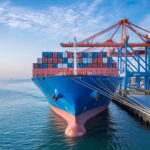

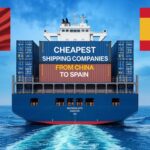
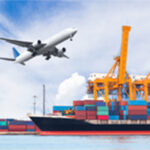


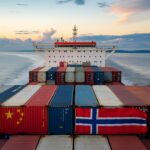

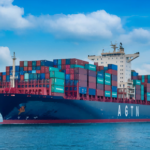
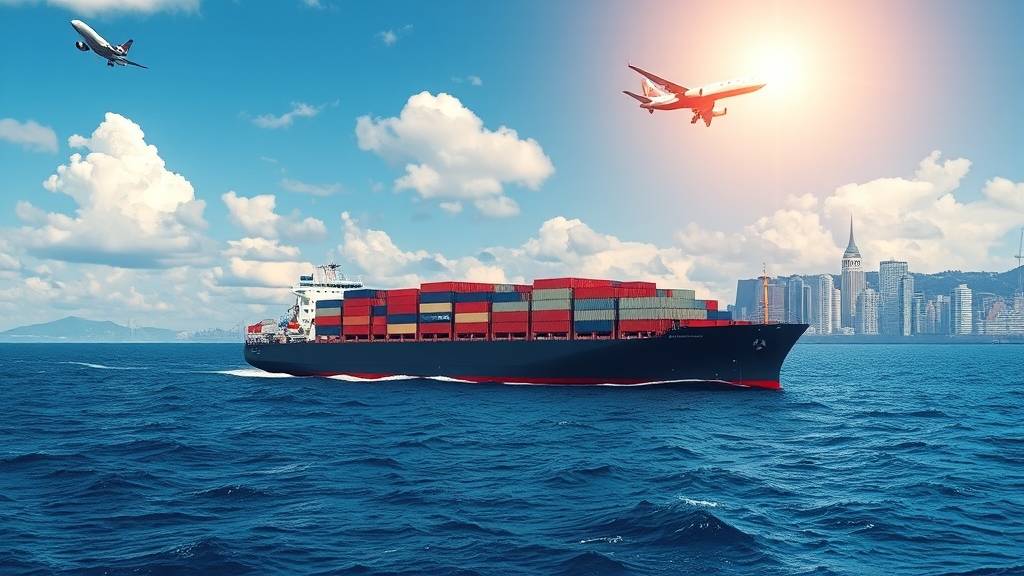

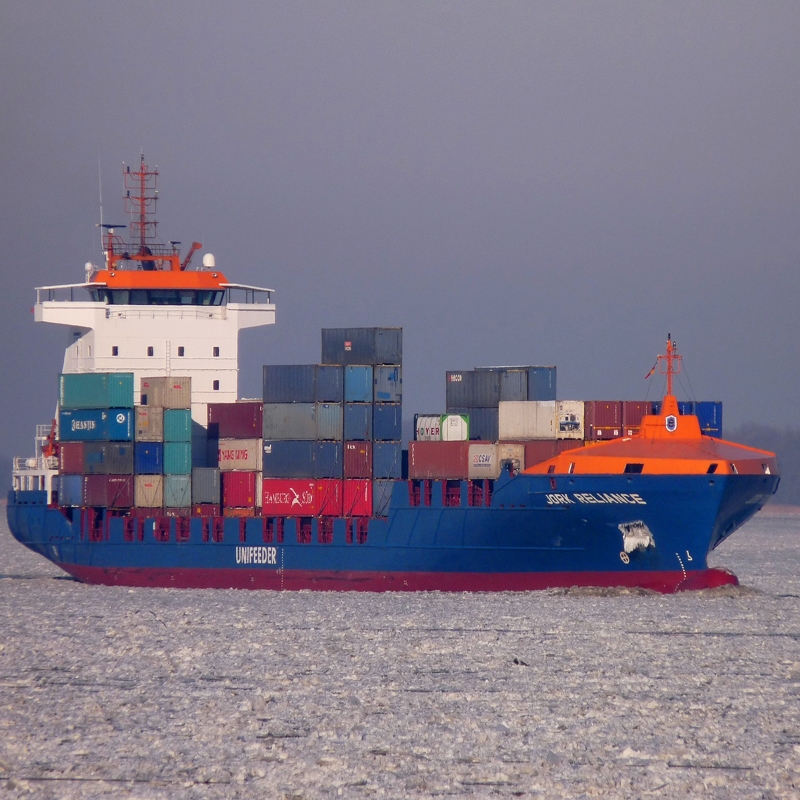
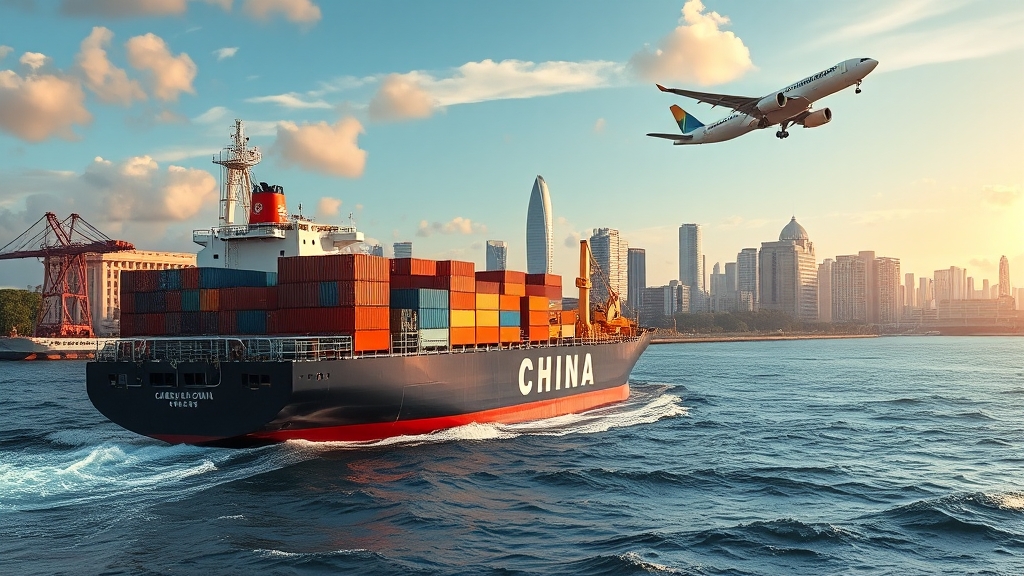
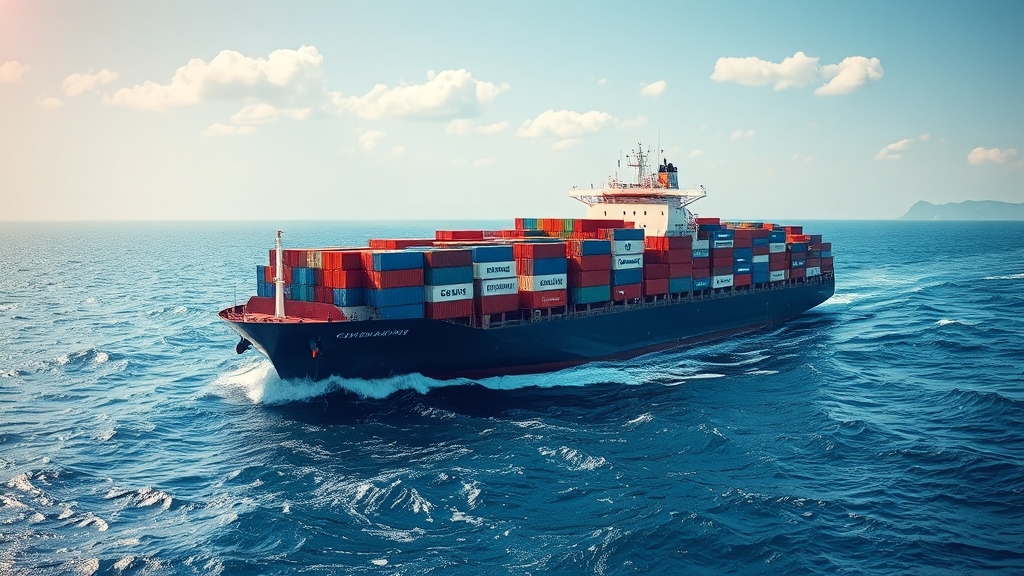





 Afrikaans
Afrikaans Shqip
Shqip አማርኛ
አማርኛ العربية
العربية Հայերեն
Հայերեն Azərbaycan dili
Azərbaycan dili Euskara
Euskara Беларуская мова
Беларуская мова বাংলা
বাংলা Bosanski
Bosanski Български
Български Català
Català Cebuano
Cebuano Chichewa
Chichewa 简体中文
简体中文 繁體中文
繁體中文 Corsu
Corsu Hrvatski
Hrvatski Čeština
Čeština Dansk
Dansk Nederlands
Nederlands English
English Esperanto
Esperanto Eesti
Eesti Filipino
Filipino Suomi
Suomi Français
Français Galego
Galego ქართული
ქართული Deutsch
Deutsch Ελληνικά
Ελληνικά Kreyol ayisyen
Kreyol ayisyen Harshen Hausa
Harshen Hausa Ōlelo Hawaiʻi
Ōlelo Hawaiʻi עִבְרִית
עִבְרִית हिन्दी
हिन्दी Hmong
Hmong Magyar
Magyar Íslenska
Íslenska Igbo
Igbo Bahasa Indonesia
Bahasa Indonesia Gaeilge
Gaeilge Italiano
Italiano 日本語
日本語 Basa Jawa
Basa Jawa ಕನ್ನಡ
ಕನ್ನಡ Қазақ тілі
Қазақ тілі ភាសាខ្មែរ
ភាសាខ្មែរ 한국어
한국어 كوردی
كوردی Кыргызча
Кыргызча ພາສາລາວ
ພາສາລາວ Latin
Latin Latviešu valoda
Latviešu valoda Lietuvių kalba
Lietuvių kalba Lëtzebuergesch
Lëtzebuergesch Македонски јазик
Македонски јазик Malagasy
Malagasy Bahasa Melayu
Bahasa Melayu മലയാളം
മലയാളം Maltese
Maltese Te Reo Māori
Te Reo Māori मराठी
मराठी Монгол
Монгол ဗမာစာ
ဗမာစာ नेपाली
नेपाली Norsk bokmål
Norsk bokmål پښتو
پښتو فارسی
فارسی Polski
Polski Português
Português ਪੰਜਾਬੀ
ਪੰਜਾਬੀ Română
Română Русский
Русский Samoan
Samoan Gàidhlig
Gàidhlig Српски језик
Српски језик Sesotho
Sesotho Shona
Shona سنڌي
سنڌي සිංහල
සිංහල Slovenčina
Slovenčina Slovenščina
Slovenščina Afsoomaali
Afsoomaali Español
Español Basa Sunda
Basa Sunda Kiswahili
Kiswahili Svenska
Svenska Тоҷикӣ
Тоҷикӣ தமிழ்
தமிழ் తెలుగు
తెలుగు ไทย
ไทย Türkçe
Türkçe Українська
Українська اردو
اردو O‘zbekcha
O‘zbekcha Tiếng Việt
Tiếng Việt Cymraeg
Cymraeg יידיש
יידיש Yorùbá
Yorùbá Zulu
Zulu